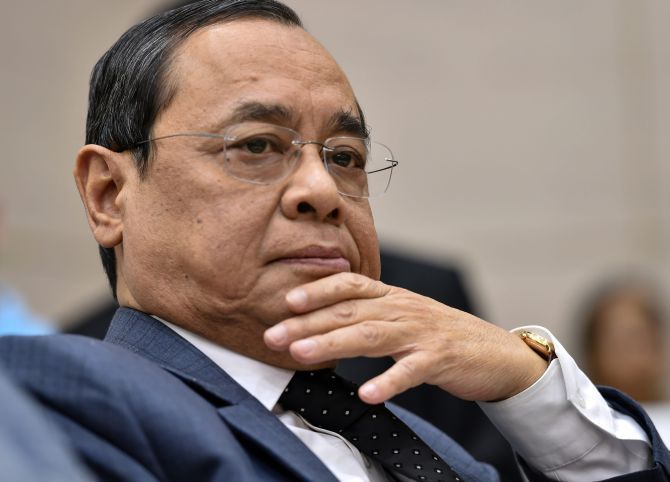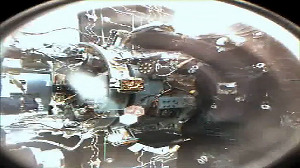Chief Justice of India Ranjan Gogoi on Monday recused himself from hearing a plea challenging the appointment of M Nageswara Rao as interim Central Bureau of Investigation director, saying he would be part of the selection committee to choose the agency's new chief.

The high-powered committee to select the Central Bureau of Investigation director comprises the prime minister, the leader of the largest opposition party and the CJI or his nominee judge of the apex court.
A bench comprising CJI and Justice Sanjiv Khanna was hearing a PIL filed by NGO Common Cause challenging the appointment of Rao as interim CBI director.
On January 10, Rao, additional director in the CBI, was made interim chief till the appointment of a new director.
This was after a high-powered committee headed by Prime Minister Narendra Modi removed Alok Kumar Verma as chief of the probe agency on charges of corruption and dereliction of duty.
The petition has sought specific mechanisms to ensure transparency in the process of appointing the CBI director.
It alleged that Rao's appointment was not made on the basis of recommendations of the high-powered selection committee.
According to the plea, the order of October 23 last year appointing Rao as interim CBI director was quashed by the top court on January 8 but the government "acted in a completely mala fide, arbitrary and illegal manner" to appoint him again in "complete contravention" of the DSPE (Delhi Special Police Establishment) Act.
It sought a direction to the Centre to appoint a regular CBI director forthwith by following the procedure laid down in accordance with the provisions of the DSPE Act, as amended by the Lokpal and Lokayuktas Act, 2013.
Besides, the petition sought an immediate direction to the government to ensure that "all records of deliberations and rational criteria related to short-listing and selection of the director, CBI, be properly recorded and made available to citizens in consonance with the provisions of the RTI Act".
The plea said the government should ensure transparency in the short-listing, election and appointment process of the CBI director by publicly disclosing, including through the website, the procedure and rational criteria for short-listing candidates, if it is done.
It sought a direction to the Centre ensuring that the process of selecting a CBI director, including composition, mandate and minutes of the meetings of the search committee, be disclosed publicly along with names of short-listed candidates so people can inform the panel of any significant adverse information they may have about any such candidate.
The plea claimed that lack of transparency in the appointment prevents any public scrutiny of the process and allows the "government to exercise undue influence" in the appointment process especially at the stage of short-listing of candidates.
Detailing the sequence of events relating to the appointment of Rao as the interim CBI director, the plea alleged that the entire process was "mala fide" as the government wanted to "appoint its own choice as CBI Director in the interim".
On January 8, the apex court Verma to return as the CBI director, albeit with his wings clipped, by setting aside the Centre and the CVC's orders divesting him of his powers and sending him on leave.
However, the top court aid it was "still open" for the high-powered committee, which selects the CBI chief, to consider the matter within a week since the Central Vigilance Commission was probing the charges of corruption against Verma.
It set aside the October 23, 2018, orders of the CVC and the Department of Personnel and Training divesting Verma of his powers and asking Rao to look after the duties and functions of the agency's director.
On January 10, the high-powered committee removed Verma as the CBI director. The same day, an order was issued by the government giving Rao the charge of interim CBI director.











 © 2025
© 2025